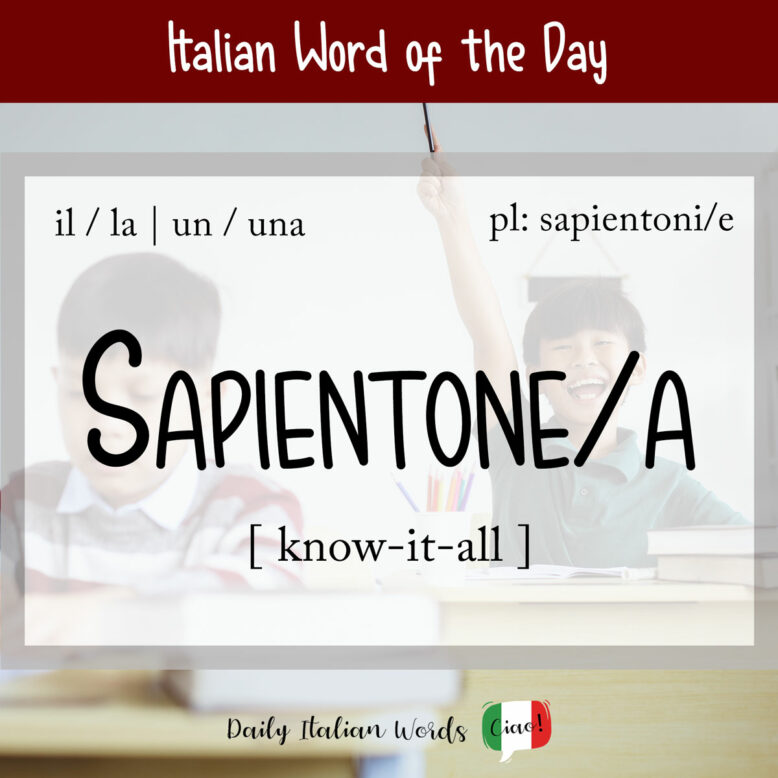We all know that one person who acts as if he or she knows everything and dismisses the opinions, comments, or suggestions of others.
In English, the best word to describe a person like this is know-it-all (or know-all) whereas in Italian, you’ll probably hear people using the terms sapientone (for a man) and sapientona (for a woman).

Here are the definite and indefinite articles that accompany this word in its masculine and feminine forms:
- il sapientone = the know-it-all (m.)
- i sapientoni = the know-it-alls (m.)
- la sapientona = the know-it-all (f.)
- le sapientone = the know-it-alls (f.)
- un sapientone = a know-it-all (m.)
- dei sapientoni = (some) know-it-alls (m.)
- una sapientona = a know-it-all (f.)
- delle sapientone = (some) know-it-alls (f.)
If you want to say “to be a know-it-all” or “to act/sound like a know it all”, you can use the expression fare il sapientone (lit. to do the know-it-all).
Non voglio fare il sapientone, ma secondo me…
I don’t want to sound like a know-it-all, but in my opinion…

The word derives from sapiente, which as an adjective means wise or knowing, and as a noun means knowledgeable person. By adding the augmentative suffixes -one and -ona onto the end of the noun, you can confer the meaning “big” (literally “big knower”).
Some synonyms you can come across are:
- saccente
- saputello (mainly used for young people that think they know better than adults)
- sputasentenze (lit. “sentences spitter”, it is less common but funny to mention because of how it is constructed)
Heather Broster is a graduate with honours in linguistics from the University of Western Ontario. She is an aspiring polyglot, proficient in English and Italian, as well as Japanese, Welsh, and French to varying degrees of fluency. Originally from Toronto, Heather has resided in various countries, notably Italy for a period of six years. Her primary focus lies in the fields of language acquisition, education, and bilingual instruction.


